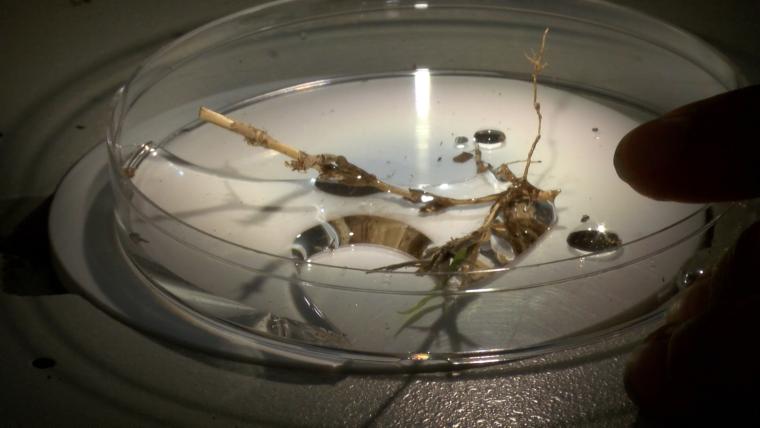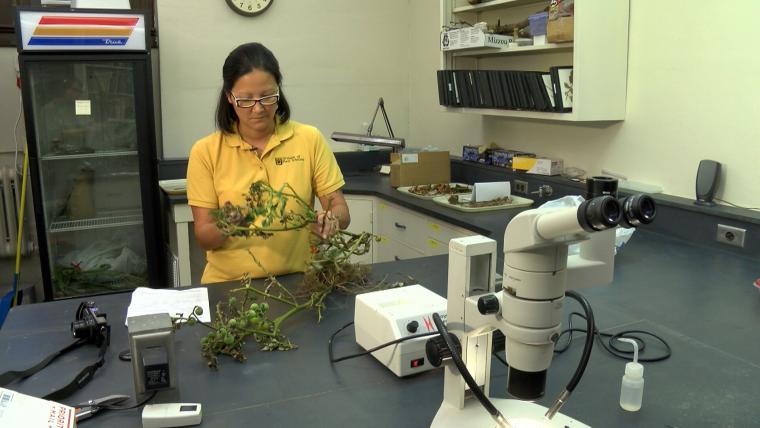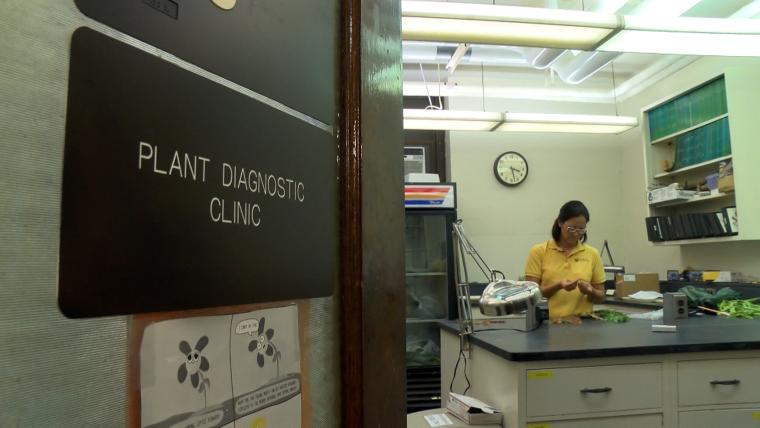The MU Plant Diagnostic Clinic can help.
COLUMBIA, Mo. – If you have the sniffles or a bad infection, a visit to your doctor can usually put things right. Plants can get sick too and the University of Missouri Plant Diagnostic Clinic is where you can turn for help.
“Homeowners can put a lot of time, energy and care into choosing plants for their yard and garden. So if those plants get sick, the clinic is a good place to come to learn what’s going on and to learn how to control or manage the problem,” said clinic director Patti Wallace.
Before you can treat, control or manage a disease or pest problem, you need to correctly identify what’s wrong.
“People should not just dump chemicals on their plants without first knowing what they are trying to treat,” Wallace said.
Mark LaTorre, an agricultural crop consultant who dropped off samples of ailing corn at the clinic, says using the wrong treatment on a plant is a bad idea.
“The chemicals that you can use are typically disease-specific, so you wouldn’t want to use a product that treats a disease if you have a nutritional problem,” LaTorre said. “It can get expensive if you’re buying and using the wrong chemical.”
The process starts when you send a sample of the troubled plant to the clinic. Wallace says it’s best if the sample includes both normal and diseased parts of the plant. Don’t send in dead plants.
“A dead plant will attract fungi and bacteria that feed on dead tissue, which can mask the original problem,” she said.
There is a nominal fee for each sample. “For homeowners, it’s $15 for a general diagnosis, which includes looking at the sample with a microscope or doing a humidity-chamber incubation for 24-48 hours,” Wallace said.
The $15 fee helps cover the cost of testing materials. Wallace says it is a small investment that can save a homeowner a lot of time and money.
Test results are typically available within one to two days. Specialized testing can take longer to get results, Wallace said.
There are several ways to submit a sample to the MU Plant Diagnostic Clinic. You can drop off the sample at the clinic between 9 a.m. and 4 p.m. on weekdays, take the sample to your local MU Extension office, or mail the sample to MU Plant Diagnostic Clinic, 28 Mumford Hall, Columbia MO 65211.
For more information, including instructions and forms for submitting samples, go to University of Missouri Plant Diagnostic Clinic.
The Plant Diagnostic Clinic is affiliated with the Division of Plant Sciences at the MU College of Agriculture, Food and Natural Resources, the MU Integrated Pest Management program, and MU Extension’s Master Gardener program.
Writer: Debbie Johnson


